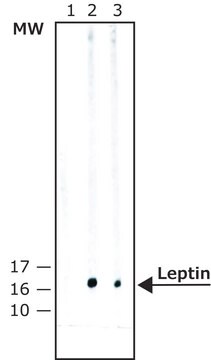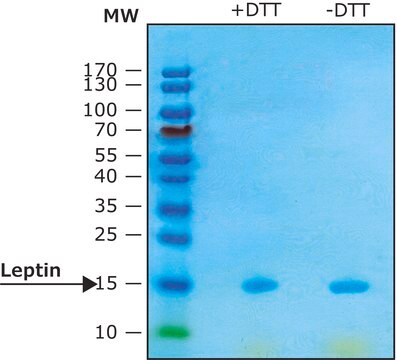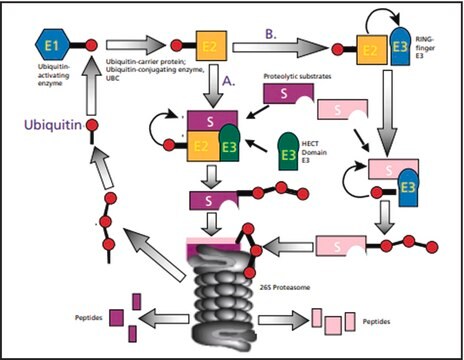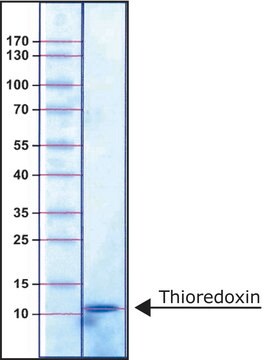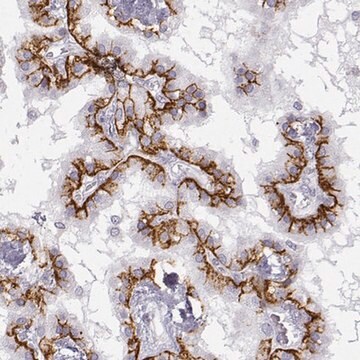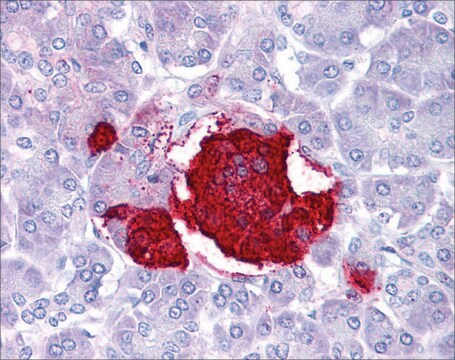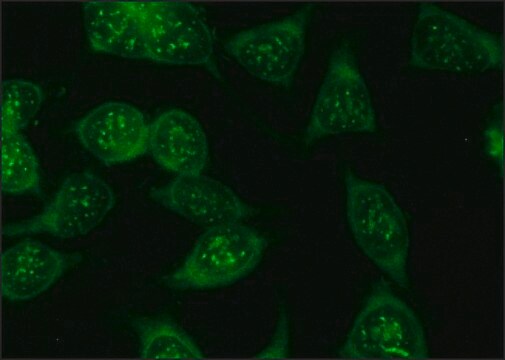L3410
Anti-Leptin antibody produced in rabbit
affinity isolated antibody, buffered aqueous solution
Synonym(e):
Leptin Antibody, Leptin Antibody - Anti-Leptin antibody produced in rabbit, Anti-OB
About This Item
Empfohlene Produkte
Biologische Quelle
rabbit
Konjugat
unconjugated
Antikörperform
affinity isolated antibody
Antikörper-Produkttyp
primary antibodies
Klon
polyclonal
Form
buffered aqueous solution
Speziesreaktivität
mouse, human
Methode(n)
indirect ELISA: 1:1,000 using human or mouse recombinant leptin
microarray: suitable
western blot: 1:5,000 using human recombinant leptin
UniProt-Hinterlegungsnummer
Versandbedingung
dry ice
Lagertemp.
−20°C
Posttranslationale Modifikation Target
unmodified
Angaben zum Gen
human ... LEP(3952)
mouse ... Lep(16846)
Allgemeine Beschreibung
Spezifität
Immunogen
Anwendung
- western blotting
- immunohistochemistry
- immunocytochemistry
- enzyme linked immunosorbent assay (ELISA)
Biochem./physiol. Wirkung
Physikalische Form
Angaben zur Herstellung
Lagerung und Haltbarkeit
Haftungsausschluss
Sie haben nicht das passende Produkt gefunden?
Probieren Sie unser Produkt-Auswahlhilfe. aus.
Lagerklassenschlüssel
10 - Combustible liquids
WGK
WGK 3
Flammpunkt (°F)
Not applicable
Flammpunkt (°C)
Not applicable
Analysenzertifikate (COA)
Suchen Sie nach Analysenzertifikate (COA), indem Sie die Lot-/Chargennummer des Produkts eingeben. Lot- und Chargennummern sind auf dem Produktetikett hinter den Wörtern ‘Lot’ oder ‘Batch’ (Lot oder Charge) zu finden.
Besitzen Sie dieses Produkt bereits?
In der Dokumentenbibliothek finden Sie die Dokumentation zu den Produkten, die Sie kürzlich erworben haben.
Kunden haben sich ebenfalls angesehen
Unser Team von Wissenschaftlern verfügt über Erfahrung in allen Forschungsbereichen einschließlich Life Science, Materialwissenschaften, chemischer Synthese, Chromatographie, Analytik und vielen mehr..
Setzen Sie sich mit dem technischen Dienst in Verbindung.